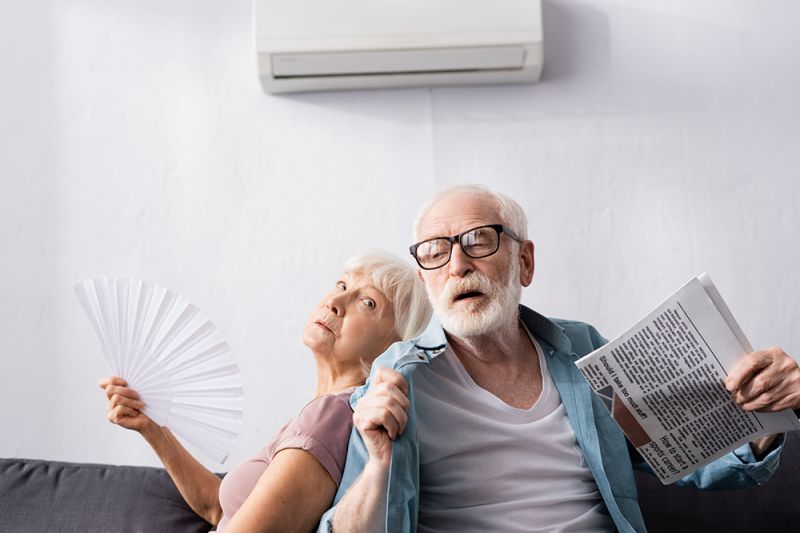11 Tips to Keep Cool in the Hot Weather

Protecting yourself as an older adult from the summer heat is crucial, as older individuals are more susceptible to heat-related illnesses. Here are some tips to help you stay safe and cool during hot weather:
1. Stay hydrated: Drink plenty of fluids, even if you don't feel thirsty. Aim for at least eight glasses of water a day and avoid excessive amounts of caffeine and alcohol, as they can contribute to dehydration.
2. Dress appropriately: Wear loose-fitting, lightweight, and light-colored clothing that allows your body to breathe and helps reflect the sun's rays. Opt for a wide-brimmed hat and sunglasses to protect your head and eyes.
3. Stay indoors during the hottest parts of the day: Plan your outdoor activities for the early morning or evening when temperatures are cooler. If possible, stay in an air-conditioned environment, such as a shopping mall, library, community center, or senior center.
4. Use fans and air conditioning: If you have air conditioning at home, use it to cool down your living space. If you don't have air conditioning, use fans, open windows, and create cross-ventilation to circulate the air.
5. Apply sunscreen: Protect your skin from harmful UV rays by applying sunscreen with a high SPF before going outside. Reapply it every two hours, especially if you are sweating or swimming.
6. Stay informed about the weather: Pay attention to weather forecasts and heat advisories in your area. If there's an extreme heat warning, take extra precautions and stay updated on any emergency notifications.
7. Take cool showers or baths: Lower your body temperature by taking cool showers or baths. You can also use damp towels or ice packs on your neck, wrists, and forehead to cool down.
8. Avoid strenuous activities: Minimize physical exertion and avoid engaging in strenuous activities during hot weather, especially during peak temperatures. If you need to exercise, do it in the early morning or late evening when it's cooler.
9. Check on medications: Some medications can increase your sensitivity to heat or impair your body's ability to regulate temperature. Consult with your healthcare provider to understand if any of your medications have such side effects.
10. Stay connected: Maintain regular contact with family, friends, or neighbors during hot weather. They can check in on you and provide assistance if needed.
11. Know the signs of heat-related illnesses: Familiarize yourself with the symptoms of heat exhaustion (e.g., heavy sweating, weakness, nausea) and heatstroke (e.g., high body temperature, confusion, rapid pulse). If you experience any of these symptoms, seek medical help immediately.
Remember, it's essential to take the necessary precautions to protect yourself from the summer heat. If you have any underlying health conditions or concerns, consult with your healthcare provider for personalized advice on staying safe in hot weather.
